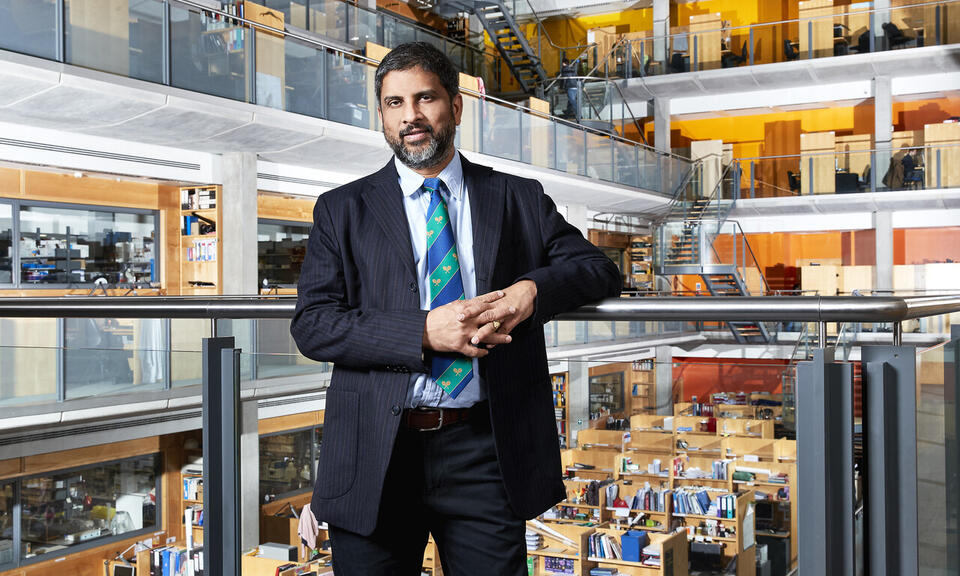
From roads to healthcare, Professor Kalyan Talluri's work in operational management aims to maximise efficiency and profits while allocating scarce resources effectively
Kalyan Talluri, Professor of Analytics & Operations, is using his operational management skills to address some challenging problems facing organisations. His research style and focus are strongly influenced by an educational background in mechanical and industrial engineering, and operations research. They also draw on his work in industries that rely heavily on dynamic pricing (airlines and hospitality), as well as his formative years in India, with what he describes as its “suffocating bureaucracy and inefficiencies”.
While his PhD was in telecommunication network design, his interest in dynamic pricing and revenue management was ignited while working at USAir in the 1990s, with the introduction of automated pricing systems. In 2004, he wrote the first academic book on this topic that continues to provide a rich supply of research problems for the academic community.
I tend to like problems that can be resolved with a tangible outcome
Dynamic pricing practices have now taken hold in a plethora of industries including hotels, rental cars, railways, e-commerce and ride-hailing (where surge pricing is common), and is accepted by consumers as normal and an efficient way of allocating scarce resources.
"Dynamic pricing and revenue management use pricing to maximise efficiency and profits in many service industries, ensuring that, when resources are scarce, each customer is served at the right time at a price that reflects the value of that service for that customer,” explains Professor Talluri.
“It's a multidisciplinary area, with models and ideas borrowed from economics, marketing, and computer science, with operations research the cohesive glue that unites these disciplines, making them both practical and implementable. I feel fortunate to have stumbled into this area when it was in its infancy."
Innovative solutions for traffic challenges
These days, Professor Talluri’s interests have shifted more towards road transportation and healthcare, both of which use operations research to bring together interdisciplinary teams to solve some of society's most pressing problems.
In transportation, Professor Talluri's team is researching innovative ways to solve the problem of congestion. One recently completed project employed dynamic pricing (as opposed to congestion zone pricing) in a peer-to-peer way to resolve unexpected traffic blockages where certain users have a serious or urgent need to get ahead.
I feel fortunate to have stumbled into this area when it was in its infancy
"We imagine smart cars will 'talk' to each other in the future, and not just talk but also negotiate intelligently, to decide who gets ahead and can jump the queue, so to speak, based on individual need, thus facilitating smoother, more efficient and fairer traffic flow."
A second suite of transportation projects explores designing underlying road networks to improve traffic flow. This includes developing a methodology to identify the optimum combination of one- and two-way orientated roads within a city network to minimise journey times for all users, considering the trade-off whereby one-way traffic improves the journey time for some, but may increase the distance and time for others. It's a difficult technical problem as the drivers are autonomous and choose their own travel routes.
Advancing cancer research
In healthcare, Professor Talluri is heavily involved in the Cancer Research UK Convergence Science Centre, a collaboration that marries the complementary strengths of Imperial College London and the Institute of Cancer Research to find innovative cancer treatments. His current project with the Clinical Trials Unit of the Centre is trying to develop a framework for costing and executing a clinical trial.
"Even non-profits have to cover their costs, or they wouldn’t survive, and in the case of clinical trials, the planning process is particularly challenging as every trial is unique, with widely varying levels of complexity and a great amount of unpredictability."
Smart cars will 'talk' to each other in the future, and not just talk but also negotiate intelligently
Another project involves the development of a tool that allows patients to easily record their symptoms, so that this information can be fed back into the trial for improved analysis and study of the side effects of the trial drug.
"I tend to like problems that can be resolved with a tangible outcome – whether an algorithm, software or a process improvement. This type of research often throws up new and interesting research problems, creating an element of give-and-take – give something useful to industry or society and take the intellectual satisfaction from the research.”

